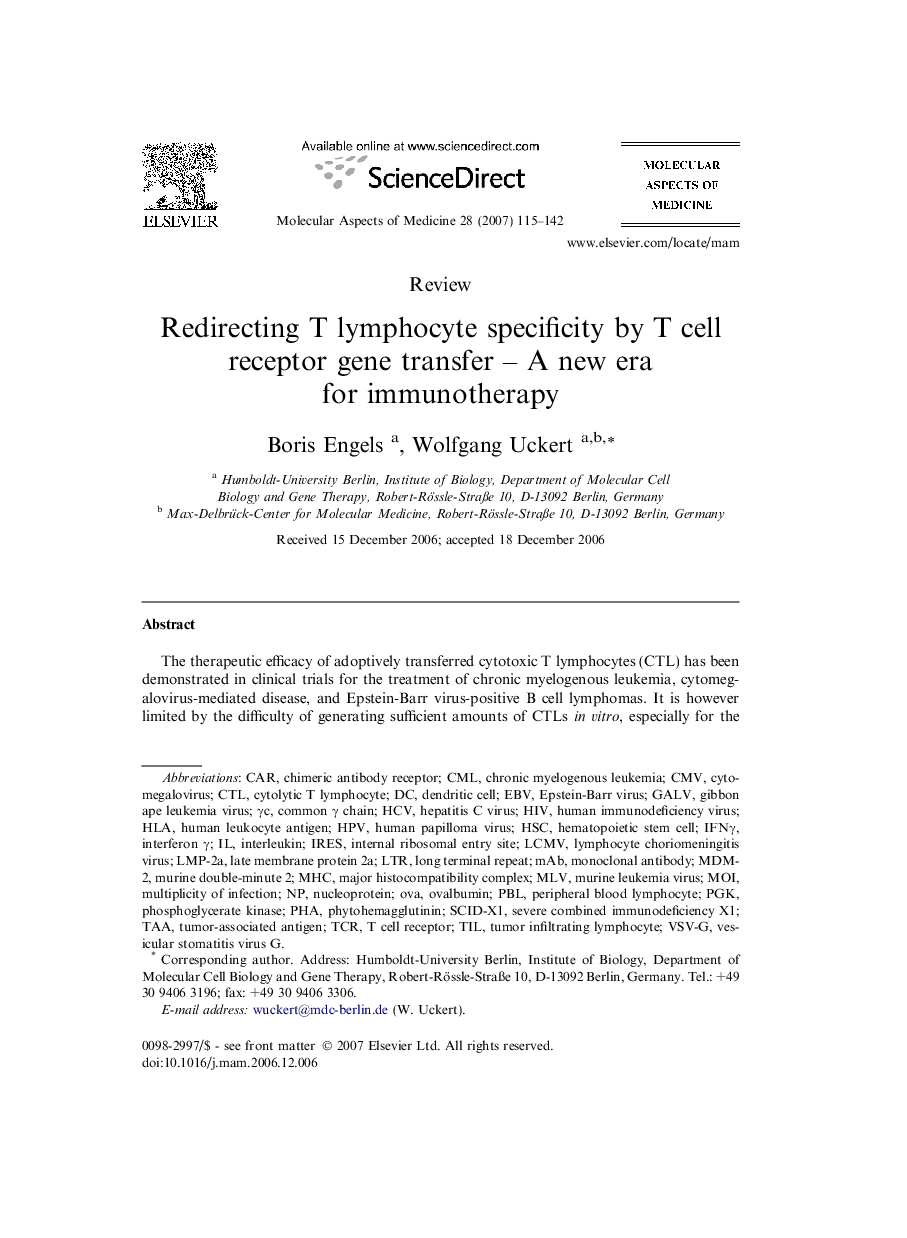| Article ID | Journal | Published Year | Pages | File Type |
|---|---|---|---|---|
| 1995813 | Molecular Aspects of Medicine | 2007 | 28 Pages |
The therapeutic efficacy of adoptively transferred cytotoxic T lymphocytes (CTL) has been demonstrated in clinical trials for the treatment of chronic myelogenous leukemia, cytomegalovirus-mediated disease, and Epstein-Barr virus-positive B cell lymphomas. It is however limited by the difficulty of generating sufficient amounts of CTLs in vitro, especially for the treatment of solid tumors. Recent gene therapy approaches, including two clinical trials, successfully apply genetic engineering of T cell specificity by T cell receptor (TCR) gene transfer. In this review we want to elucidate several principles of the redirection of T cell specificity. We cover basic aspects of retroviral gene transfer, regarding transduction efficacy and transgene expression levels. It was demonstrated that the number of TCR molecules on a T cell is important for its function. Therefore, an efficient transfer system that yields high transduction efficiency and strong and stable transgene expression is a prerequisite to achieve effector function by redirected T cells. Furthermore, we consider more recent aspects of T cell specificity engineering. These include the possibility of co-transferring coreceptors to create for example functional T helper cells by engrafting CD4+ T cells with a MHC class I restricted TCR and the CD8 coreceptor and vice versa. Also, risks related to the adoptive transfer of TCR gene-modified T cells and possible safety mechanisms are discussed. Finally, we summarize recent findings describing transferred TCRs capable of displacing endogenous TCRs from the cell surface.
